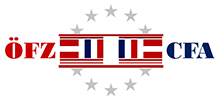Western Balkans Reflection Forum: The Western Balkans and the European Union. Moving? In the right direction?
Conference on the Future of the European Union
May 30, 2018The European Union and the Western Balkans: Moving apart or together?
July 30, 2018Western Balkans Reflection Forum: The Western Balkans and the European Union. Moving? In the right direction?
Western Balkans Reflection Forum Initiative
The Western Balkans and the European Union
Moving? In the right direction?
International conference organised in the framework of the
Austrian Presidency of the Council of the European Union
Brussels, 3-4 July 2018
3 July 2018, 16h30-19h00 – Public roundtable:
Why now enlargement in the Western Balkans is good – or bad – for the EU
Venue: Regional Cooperation Council (RCC), c/o EFTA, Rue Joseph II, 12-16, 1000 Brussels
4 July 2018, 8h45-13h30 – Reflection Forum:
The Western Balkans and the European Union: Moving? In the right direction?
(This event takes places under the Chatham House rule)
Venue: Permanent Representation of Austria to the European Union, Avenue de Cortenbergh 30, 1040 Brussels
There is currently movement on the EU enlargement front. However, it could turn out that new steps actually reversed the direction. After Berlin, Vienna, Paris and Trieste, a new Western Balkans Summit will take place in the framework of the Berlin process in London, next July. The European Council at the end of June 2018 will have the EU’s approach to the region on its agenda. In May 2018, a new EU-Western Balkans Summit was staged in Sofia – fifteen years after the Thessaloniki Declaration in which the EU promised an “EU perspective” to the Western Balkan countries. In addition, in February 2018, the EU issued an innovated Enlargement Strategy.
However, the EU travails with its reform agenda, negotiations about the new EU budget, Brexit and other troublesome issues continue to capture the bulk of the attention and to mobilise most of the energy of the member states and EU institutions. Progress in the Western Balkans remains uncertain at best, in terms of democracy, good governance, economic development and good-neighbourly relations.
An increase of the frequency of enlargement-related meetings, even on highest levels, will hardly alter the reality of these challenges. Innovative approaches to EU enlargement, differentiated integration, economic transformation, regional cooperation and democratic participation are required if both the EU and the potential future members want to overcome the business as usual approach, which has governed EU-Western Balkans relations for most of the past 20 years.
This event will follow up on the most recent developments in EU-Western Balkans relations and discuss the membership perspectives of the Western Balkans in the current international political and economic context:
- What conclusions can we draw from the new EU enlargement strategy and country reports?
- What are the results of the EU-Western Balkans Summit of Sofia of May 2018 and the European Council 28-29 June 2018?
- What can be expected from the London meeting in July 2018?
- How successful has the Berlin process been in maintaining the impetus of a slowed-down accession process?
- What will be the future of the Berlin Process thereafter?
- To which extent are the EU’s internal reform agenda and Western Balkans accession perspectives linked?
- What should be changed in the EU’s approach towards the Western Balkans to make it both more effective and more credible?
